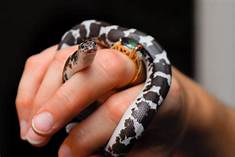Can You Have a Capybara as a Pet? Essential Facts and Considerations
Capybaras, the world's largest rodents, native to South America, have gained popularity as exotic pets due to their unique appearance and seemingly gentle nature. However, before considering a capybara as a pet, it's crucial to understand their specific needs, legal requirements, and potential challenges.

Temperament and Behavior
Capybaras are generally docile and friendly animals. They are social creatures that live in groups and enjoy interacting with humans. Capybaras can form strong bonds with their owners and are known for their calm and affectionate nature.
However, it's important to note that capybaras are wild animals and can exhibit unpredictable behavior. They may become aggressive if they feel threatened or stressed. Proper training and socialization are crucial to ensure a well-behaved capybara pet.
Habitat and Enclosure
Capybaras require a spacious enclosure that allows them to move freely and engage in their natural behaviors. An ideal enclosure should include a large outdoor area with access to a swimming pool or pond, as capybaras love to swim and bathe.
The enclosure should also have a sheltered area for sleeping, nesting, and protection from harsh weather conditions. Capybaras need a warm and humid environment, so it's essential to provide appropriate heating and humidity control within the enclosure.
Diet and Nutrition
Capybaras are herbivores and their diet primarily consists of grasses, aquatic plants, fruits, and vegetables. They have a high fiber requirement, so it's important to provide them with a variety of fresh, high-quality hay, grasses, and leafy greens.
Additionally, capybaras need a balanced diet that includes essential vitamins and minerals. Specialized commercial diets or supplements may be necessary to ensure their nutritional needs are met.
Legal Considerations
Before acquiring a capybara as a pet, it's crucial to research and comply with local laws and regulations. In some countries and states, it may be illegal to own a capybara as a pet. Even in areas where it's legal, there may be specific licensing or permit requirements that need to be met.
It's essential to check with local authorities and veterinary professionals to ensure you are following all legal requirements and providing the best possible care for your capybara.
Conclusion
While capybaras can be fascinating and rewarding pets, they require extensive care, specialized knowledge, and a significant investment in time and resources. Before deciding to own a capybara, it's crucial to carefully consider their specific needs, potential challenges, and legal implications. Consulting with exotic pet experts and veterinarians is highly recommended to ensure you can provide the best possible care for your capybara companion.
Declaration: All article resources on this website, unless otherwise specified or labeled, are collected from online resources. If the content on this website infringes on the legitimate rights and interests of the original author, you can contact this website to delete it.



